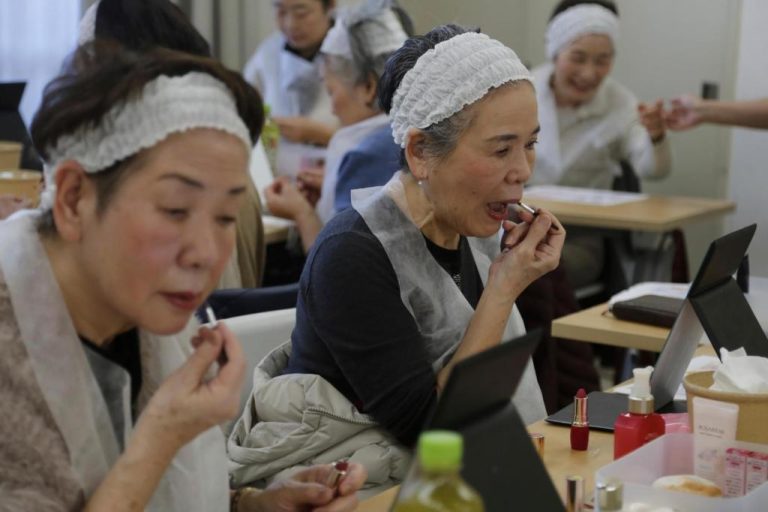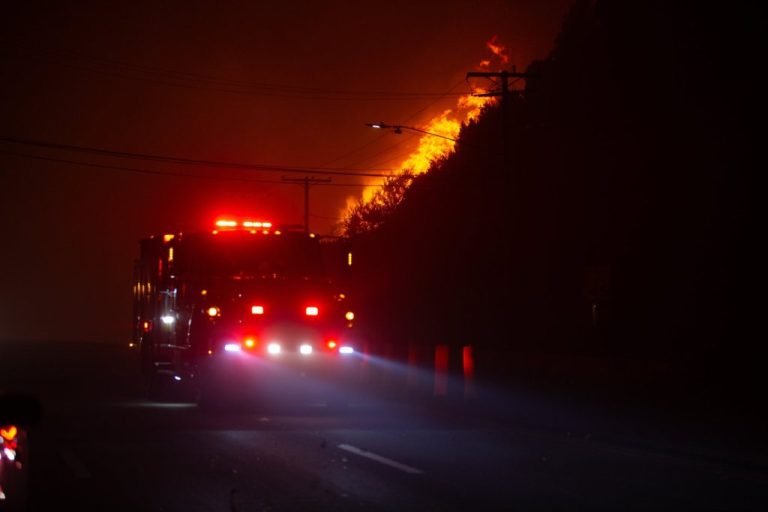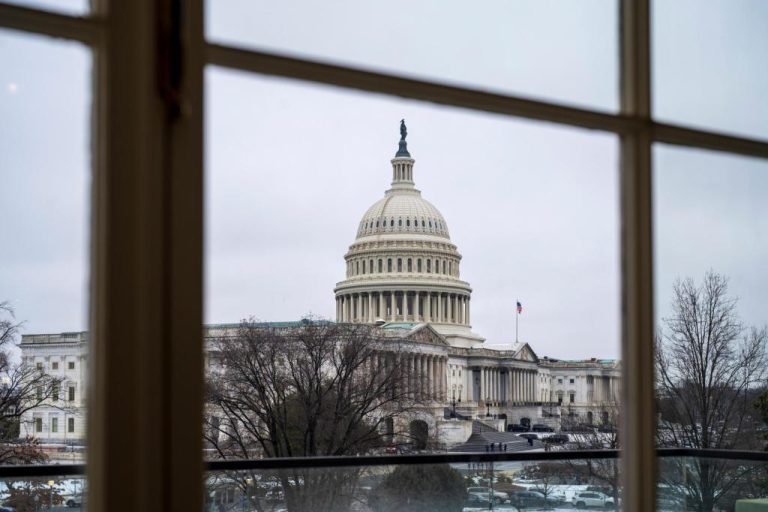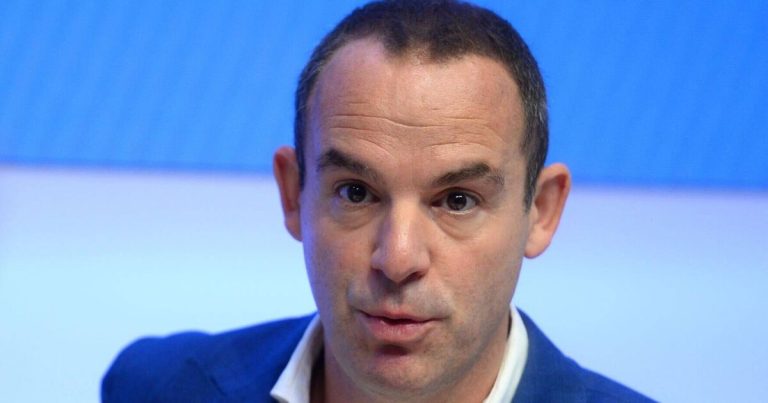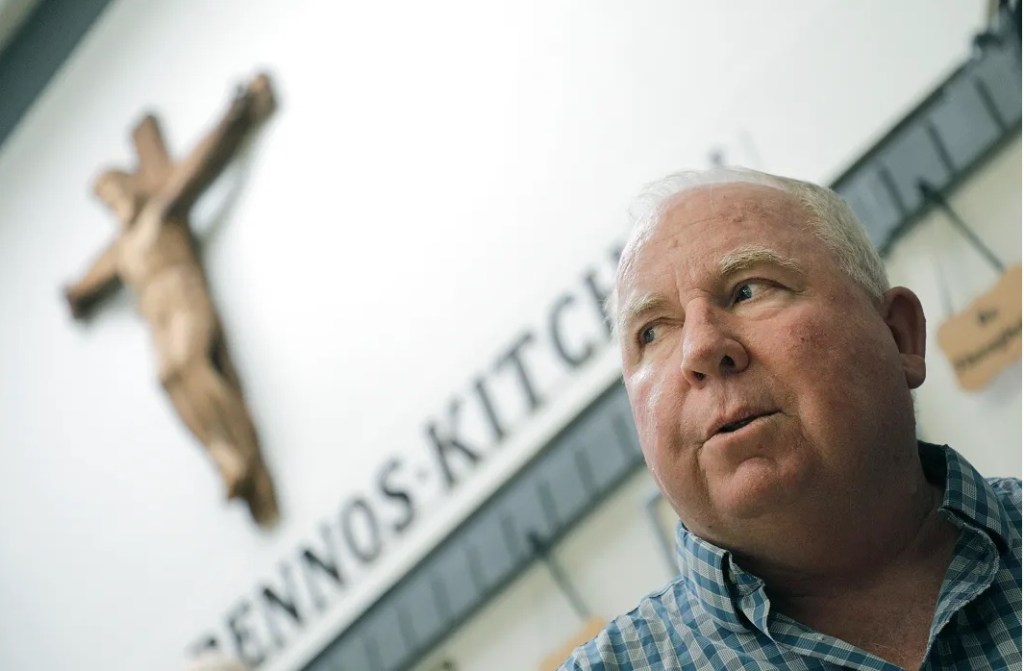

Retired Col. Paul “Mac” McNamara was a helicopter pilot for many of his 27 years in the Marine Corps. He served in Operation Desert Storm and later supported anti-trafficking operations and flew relief missions, including during Mount Pinatubo’s eruption in mid-1991 in the Philippines.
Now he’s bringing his military know-how to operations at Oceanside-based nonprofit Brother Benno’s, which serves poor and homeless community members through meals, addiction recovery programs and myriad other services.
Some say he still runs relief missions every day.
The nonprofit has served more than 5 million meals since it started 42 years ago as a soup kitchen opened by an Oceanside couple, Harold and Kay Kutler, and their friend, Brother Benno, a Benedictine monk from the Prince of Peace Abbey, who brought bread he baked to poor families in the neighborhoods. Despite being on the brink of closing several times, the effort grew.
“For over 40 years, resources have been given to Brother Benno’s to carry out its mission,” said McNamara, executive director at Brother Benno’s. “In the military, when we were developing several courses of action for a plan, we often would say tongue in cheek that hope is a course of action with the understanding that it really was not. But here I would say faith is the course of action,”
The organization of mostly volunteers includes seven recovery homes throughout the community. The nonprofit not only provides food, clothing, showers and services for hundreds of homeless folks, but also rent assistance for working families just scraping by and on the verge of homelessness. People who are going through the recovery program work alongside volunteers to help keep the place running. It has become a family to many people who got support there to overcome addictions and turn their lives around.
“Working here is different than any other job I’ve ever had,” said McNamara, who worked on fighting homelessness as mayor of Escondido from 2018-2022. “It has literally changed me. We are faith based. By that I mean we trust in God to provide and guide us. You might say it is part of our corporate culture.”
Almost every morning, McNamara joins folks at one of the picnic benches in the big dining hall and talks with the people who have come there at 6:30 a.m. to eat a warm breakfast cooked up by Craig “Pelon” Mercer, a Marine Corps veteran who at one time was among the homeless sitting at those benches in Brother Benno’s dining hall at the main center on Production Avenue.
“As you work here, you learn about the redemption stories,” said McNamara, who took the helm at Brother Benno’s nearly two years ago. “People who have fallen to a point most of us would think are lost for good, they find their way back to a productive life. You see that God has never abandoned them. It is a very powerful experience to witness. You come to realize that all of our guests are God’s children, and we are all part of an extended family.”
“That said, our faith does not exempt us from the concerns of any nonprofit business, but at the end of the day, we trust that God will provide and I would argue He does,” McNamara said.
McNamara felt his military background helped “bring structure and the importance of solid processes” to the nonprofit.
McNamara said his experience in the Marine Corps is helpful in establishing division of labor and using a chain of command and coordinating different functions for a common goal along with developing organizational strategies and goals. McNamara, who worked as executive director of the MCRD Museum Foundation and also turned around a faltering business owned by native Alaskans, acknowledged that there is a lot of overlap between good business practices in the private sector and the military.
One of the reasons Brother Benno’s has been able to build its capacity to serve more people, McNamara said, is because the nonprofit has encouraged initiative at the lower ranks, as he observed in the Marines. Staff at all levels are encouraged to use their experience to find innovative ways to improve what they do.
“Culturally, we moved away from a ‘that is how we always did it mindset’ to ‘how can we make this better’. There is an axiom in the military that people will either live up or down to one’s expectations,” McNamara said.
More than 400 of the 4000 people per year who receive services at Brother Benno’s are veterans, so it also helps that McNamara understands where they are coming from.
Brother Benno’s military team includes Joe McDevitt, who served in the Navy for nine years, mostly on sea duty aboard three ships and later joined a defense contractor. The lieutenant commander serves as volunteer chairman of The Brother Benno Foundation’s board of directors.
McDevitt joined Brother Benno’s as a volunteer grant writer five years ago as he had extensive experience with contracts in his career. He joined the board in 2021 and was named chairman last year.
“My goal is to continue to develop relationships with county and city leaders, community partners, local businesses and faith-based organizations to expand the resources Brother Benno’s needs to serve more guests,” McDevitt said.
One way McDevitt is applying his military experience is in working to improve efficiencies and lower operating costs.
Like most everyone serving at Brother Benno’s, McDevitt has read and re-read Kutler’s book, “Soup Soap Hugs Hope: The Story of Brother Benno’s Life-Changing Soup Kitchen,” to make sure he’s following the original mission.
“We follow the ministry of Brother Benno to uplift the dignity of all the people we serve,” McDevitt said. “I have seen the same dedication and intensity to serve others here at Brother Benno’s as I saw when Navy crewmembers expended all efforts to support each other, often under difficult circumstances.”
The biggest reward is attending the celebration for folks who finish the 26-week substance abuse recovery program, including weeks of serving at Brother Benno’s. “The act of giving to other people forms a key part of their recovery,” McDevitt said.
“After witnessing the “miracles of change” this place has produced, it has changed me and many others,” McNamara said.


